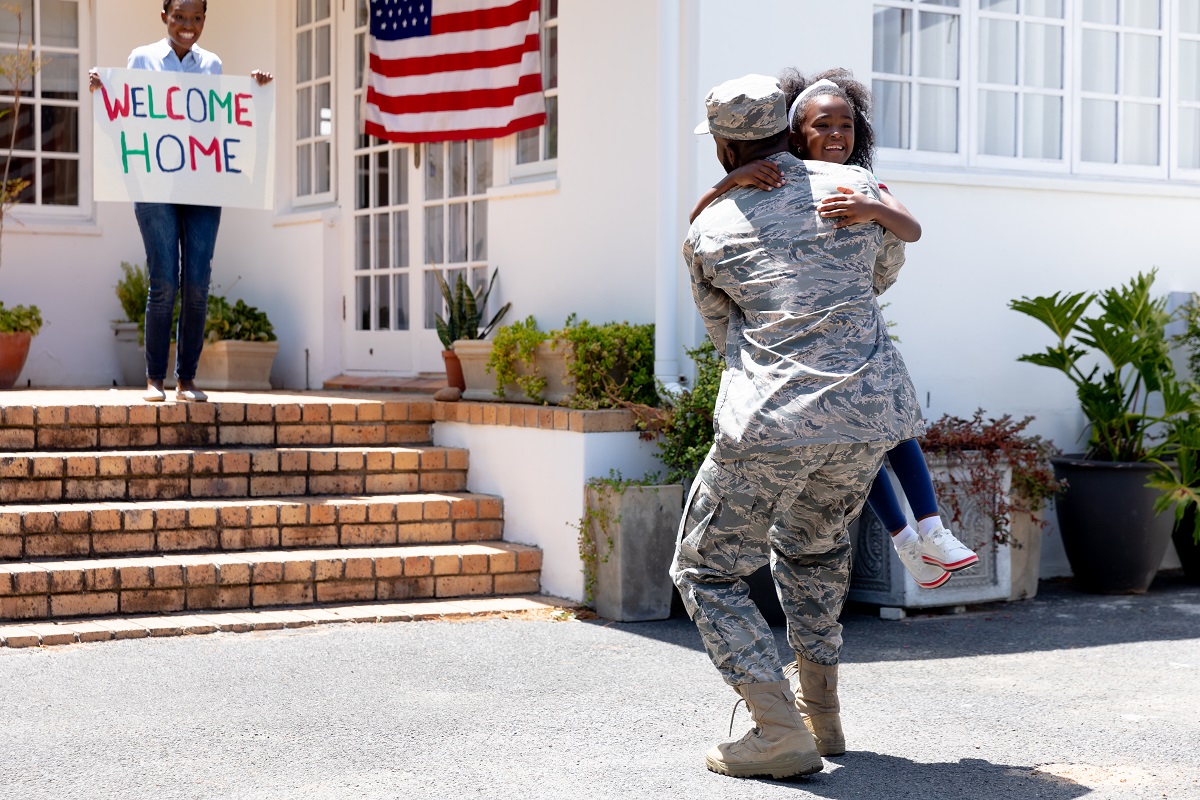
Imagine waking up in the morning, and feeling like you are still at the front line. For American veterans, the horror and fear that they faced during their combat time can create lifelong disability. A level of trauma that civilians may never experience. Yet somehow, veterans are expected to cope with it with few resources. Could Ketamine help resolve PTSD for our vets?
A loud sound. Seeing or hearing a gun. Having violent political protests in your city and on the news. There are many triggers that veterans with PTSD must cope with. Each time, it brings them back to their original trauma. Like it was just yesterday. They never know when the symptoms of PTSD are going to strike. They can’t predict how they may react, or the severity of the emotional response they will have to the traumatic memory.
Not every American veteran suffers from the post-traumatic stress disorder. But 12% of veterans (particularly Gulf War veterans) have moderate to severe PTSD. And the symptoms can be so disruptive, it can impact employability, personal relationships, and self-care.
Countries around the world including Canada, are rapidly developing ketamine treatments. These clinics focus on PTSD therapeutics and treatment-resistant depression. The first group to begin trying ketamine therapies in U.S. clinical trials are veterans, through the VA health program. A hint that formal ketamine treatment clinics may be on the horizon as a mental health treatment option in the future.
What is different about ketamine and other psychedelic drugs, that can help veterans with PTSD and TRD? How do psychedelic drugs penetrate the deepest emotional sources of depression and anxiety to help free patients from symptoms of distress? Let’s take a closer look to figure out how psychedelic treatments could improve lives.
On your worst day at work, you can expect to see and experience about 5% of what the average American veteran experiences. Whether they are deployed at home as border protection or in response to natural disasters or deployed overseas in military operations. The job takes a toll on the mental health of our soldiers.
Sources of post-traumatic stress disorder can include these scenarios:
There is a culture within the military (and this is true in all countries) that places a stigma against mental health disorders. Soldiers are conditioned to be tough, resilient, and capable of handling anything they are asked to do in the service of our Country. And they are expected to be able to cope with the impact quietly and independently of what they see, and what they have to do in the line of service.
In terms of legal provisions, the U.S. military does provide complete healthcare for servicemen and servicewomen. But many fear that their jobs would be “on the line” if they said something about their experience. If they seek mental health treatment in the military, many feel they will be blacklisted, and prevented from rising in the ranks. The struggle for our veterans is real. Administratively and culturally within the military, there are consequences for being a “whistleblower”
Veterans feel powerless when they begin to experience mental health problems. They can isolate themselves from family members and friends. This is common because many of them do not want to seem aggressive or have emotional outbursts around people they know and love. That results in the stereotype of the “hermit veteran” who withdraws as much as possible from normal life and relationships with others. And that response also means they are less likely to seek mental health therapy to help them address and manage their symptoms of PTSD or depression.

If the traumas that American veterans experience are so difficult, why does it not impact them during their years of active service? It does. The difference is that they are surrounded by other people in the military who have experienced the same traumas. They don’t feel like they are any different than their peers and colleagues in the military forces. And there is actually some comfort in that; it is accepted as part of the job, and they are surrounded by a work culture that views these traumas as “normal”.
After a military veteran retires from active duty however, things change. They are expected to transition back into civilian life without bringing that emotional baggage with them. And that doesn’t happen. They are around fewer people who understand the symptoms of PTSD. That includes family and friends. And since few people in their civilian social circles may have experienced trauma, they feel that no one understands, and they have no one to talk to.
Us. Department of Housing and Urban Development estimates that 40,056 veterans are homeless on any given night. And that makes no sense to anyone who has a family member who is a retired veteran. They are provided with free healthcare through Veteran’s Affairs. There are programs that provide funds for employment retraining and other initiatives to help veterans transition back to civilian life.
When post-traumatic stress disorder (PTSD) is not resolved for the veteran, they may turn to substance abuse as a way to “numb the pain”. Military men and women are not permitted to use cannabis during active duty, and they are frequently drug tested. But after retirement, and with debilitating mental health symptoms, many use drugs or alcohol (or both) to cope with the trauma.
Alcohol and prescription drug use are the two most common types of drug abuse experienced after leaving active service. The symptoms of post-traumatic stress that veterans can experience include:
Sometimes soldiers are asked to do things that conflict with their moral code. Things that they do not feel are right in certain circumstances. It takes a special and strong kind of human being to be conditioned for military service. The fact that some veterans experience debilitating long-term mental health symptoms is not surprising.
With a storm of emotional reactions to triggers that remind them of past traumas, some veterans turn to drug and alcohol abuse to numb the anxiety. They try to normalize their emotional experience so that they can be gainfully employed. To reduce the rate of depressive mood, irritability, apprehension, and mistrust and try to integrate back into civilian life. And it’s not easy for them.
Veterans frequently feel misunderstood. Hollywood movies and popular culture have perpetuated images of veterans with violent or emotional health disorders. Think “Apocalypse Now” or “Rambo: First Blood”. The imagery of the veteran with severe and possibly dangerous mental health issues creates an inaccurate picture of their struggles.
The social and pop culture stigma against veterans also means that they may struggle to find employment once they have left the U.S. military. Successfully managing PTSD and TRD long-term requires a compassionate employer. One who will allow the veteran employee to attend health appointments and cognitive behavioral therapy. And periodically when symptoms become too overwhelming, an employer who will understand periodic “mental health days” and sick days off as needed.
But it is not just the employer who needs to be compassionate and supportive of veterans as they re-enter the workforce. Other employees and peers in the workplace need education and an understanding of the symptoms of PSTD and TRD. Just like other disabilities, it should be accommodated to help the veteran heal and remain employed. So strong are the pop culture misconceptions about veterans, that their coworkers may actually fear them. For no reason.
This may be why some veterans change jobs frequently. Imagine having co-workers who think you may “snap” at any minute. Even if the veteran is managing their symptoms well, the stigma and concern persist. According to Dr. Andrea Finlay, with the Center for Innovation to Implementation at the VA Palo Alto Health Care System, the majority of criminal charges involving veterans are related to drug abuse, not violent crimes. And the increased rate of drug abuse is linked to unresolved mental health needs, including post-traumatic stress disorder.
Some cases of clinical depression do not respond to antidepressants. There are two classes of antidepressants available for the treatment of moderate to severe depression. Some of the typical modalities used in therapy include:
Many patients do not respond to normal treatment plans for depression. Other patients cannot cope with the side effects of medication use, and the therapy is ineffective. One of the best approaches for treatment-resistant depression is a combination of psychotherapeutic treatment and antidepressants. But it does not always work. What happens for these patients is that they persist with life-threatening symptoms of low-mood and sometimes thoughts of suicide.
The symptoms of trauma can become worse after an individual retires. That is the finding of several clinical studies of veterans with post-traumatic stress disorder. One of the things about trauma is that ‘staying busy’ can sometimes help. It can distract an individual to help make trauma symptoms a little more manageable. But after retirement, when activity level declines, PTSD can actually increase in severity.
What does this mean for American veterans who a PTSD diagnosis? It means that they are entering their retirement years with mental health problems that have not been addressed. Facing underemployment challenges after being discharged from the military, many veterans are not financially prepared for retirement. It is estimated that as many as 7% of veterans in the United States live at or below the poverty line.
These factors contribute to the increased suicide rate nationally for American veterans. The National Veteran Suicide Report (2019) reported that over 6,000 veterans die from suicide every year. The average number of daily veteran suicides rose from 86.6 to 124.4 from 2005 to 2017. Veterans with unresolved mental health concerns.
A select number of veterans have been receiving synthetic ketamine therapy for the treatment of post-traumatic stress disorder. A synthetic drug known as esketamine is the first new treatment for depression cleared for clinical use.
In December 2019, 15 veterans had received approval for treatment through the VA health system. Esketamine is a nasal spray developed by Janssen called Spravato. It was made available through 7 of the total 1,200 VA treatment hospitals in the country. The use of Spravato was approved only to clinics who had experience with ketamine, and the ability to closely supervise use. Veterans will receive two doses per week on a one-month treatment plan, combined with psychotherapeutic counseling.
How can ketamine and synthetics like Esketamine work to help veterans recover from post-traumatic stress disorder? Clinical studies of psychedelic drugs for the treatment of mental health disorders are not new, but they are gaining momentum in the United States. Ketamine has been cleared for off-label use in treatment-resistant MDD. There are studies that have shown the therapeutic result works, for weeks after treatments are completed.
Ketamine dampens the NMDA receptor activity. It has also been shown in clinical studies to help reverse the physiological impact of severe chronic stress and trauma in patients. For patients undergoing ketamine therapies, it is a chance to become lucid and evaluate the traumas in a relaxed state. Patients completing a ketamine “trip” are more receptive to cognitive-behavioral therapies according to some studies.
Canada has legalized ketamine clinics for the treatment of mental health disorders. Ketamine remains a controlled substance in Canada. Patients with PTSD or severe treatment-resistant depression can still request it. And the FDA is closely monitoring the clinical studies of ketamine therapies in Canada and globally, for safety and drug administration protocols.
No Information on MarijuanaDoctors.Com should be used to diagnose, treat, prevent or cure any disease or condition. You can view our Full Disclaimer here.